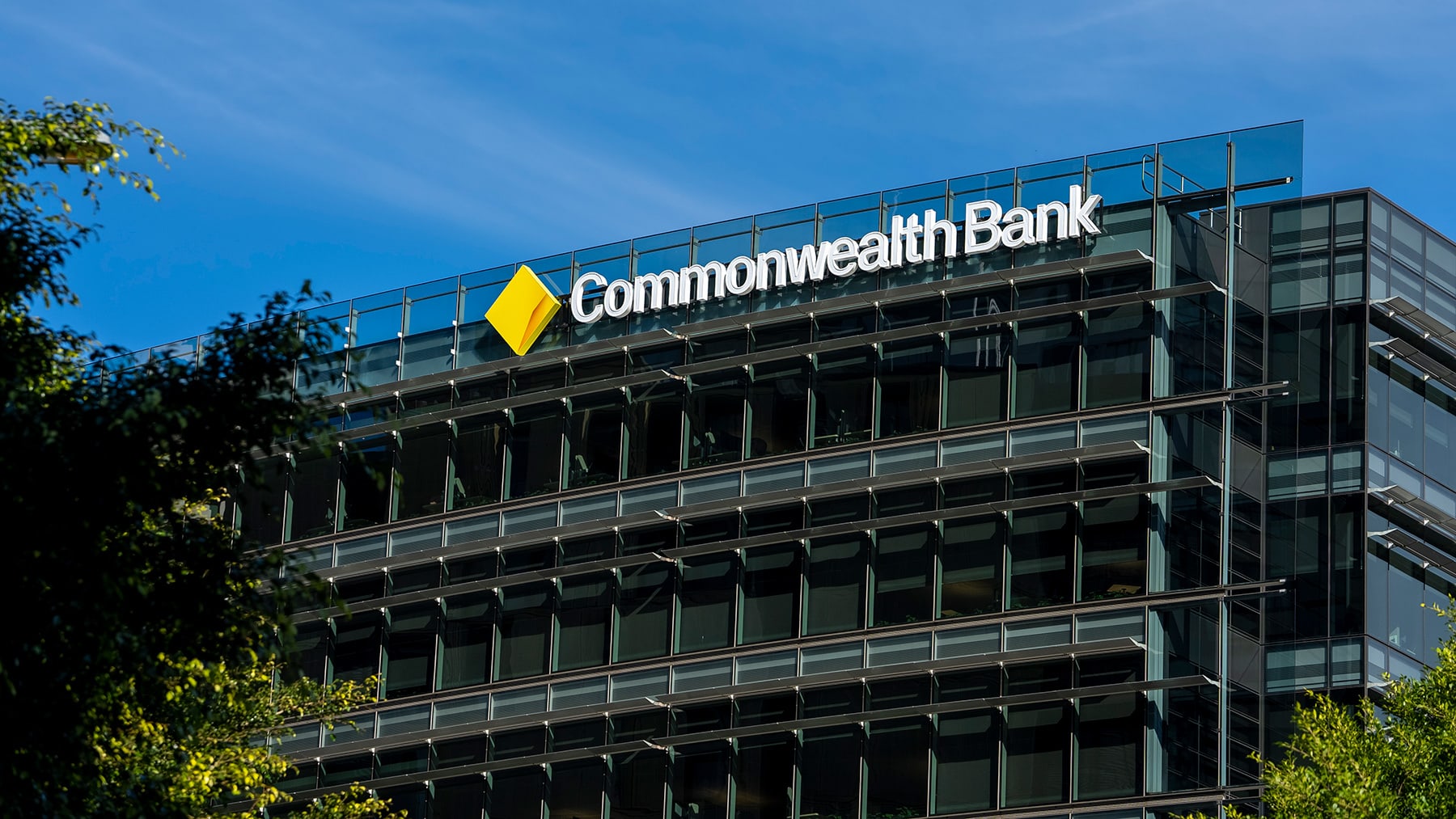Borrow
COVID-19 has cemented the era of digital banking, but trust in it falls short
Borrow
COVID-19 has cemented the era of digital banking, but trust in it falls short
As life goes digital, banks are still missing the mark when it comes to consumer trust.
COVID-19 has cemented the era of digital banking, but trust in it falls short
As life goes digital, banks are still missing the mark when it comes to consumer trust.

Trust remains a significant shortcoming for many of Australia’s banks and financial institutions, traditional or otherwise.
According to new research released by GBG, just 14 per cent of Australians said that being big and reputable was enough for them to trust a financial institution with their personal data.
“Businesses across all industries still have a long way to go in building and sustaining digital trust,” said GBG regional general manager for ANZ Carol Chris.
Importantly, the report noted that the banking and financial services sector was unique in that it featured organisations with both the lowest and highest levels of trust.

As many as 46 per cent of surveyed consumers ranked crypto banks as the type of business they were least comfortable sharing their digital identity and data with, while 33 per cent levied a similar level of distrust towards buy now, pay later operators like Zip and Afterpay.
Just 39 per cent of Australians said that they would sometimes trust their bank with their personal information.
On the other hand, 37 per cent said they trust their bank with their digital identity completely. Add to that 4 per cent who said that they didn’t trust their current bank with that information and were in the process of switching.
The report emphasised that, as the pandemic has increasingly driven consumers’ financial lives online, the stakes for building trust in the digital era have risen accordingly.
Citing a lack of digital trust, GBG found that most consumers still prefer to handle their financial affairs face to face.
Just 26 per cent said they’d be willing to open a bank account in lockdown and only 31 per cent said they’d be willing to buy or sell a house if the process was entirely conducted online.
While no industry has managed to completely secure the digital trust of customers, Ms Chris noted that the familiarity that many consumers have with large entities can help.
Interestingly, 66 per cent of surveyed consumers said they were comfortable giving their digital trust to government websites, which beat out large banks at 55 per cent, superannuation firms at 43 per cent and healthcare providers at 41 per cent.
“Newer business models like fintechs and neo-banks, and lifestyle and entertainment businesses taking a digitalised approach, could benefit from collaborating with the more established segments to gain trust,” Ms Chris said.
“But most importantly, consumers feel more assured when organisations clearly make the effort to integrate frontend security measures, which underscores the need for simple, safe and secure identity verification for onboarding and authentication for re-access.”
About the author

About the author


Banking
ANZ’s company-borrower mortgage clampdown: a risk reset with wide spillovers for SMEs, investors and non-banks
ANZ has tightened credit settings for home loans where the borrowing entity is a company — a narrow policy change with broad commercial consequences. It signals a shift in risk appetite across ...Read more

Banking
CBA’s investor-loan win signals a new phase in Australia’s mortgage machine
Commonwealth Bank’s outperformance in investor mortgages isn’t just a leaderboard moment; it’s a proxy for who owns the next growth leg in a broker‑led, increasingly digital mortgage marketRead more

Banking
A divided Big Four signals a two-track 2026: how to profit from rate uncertainty
Australia’s largest banks can’t agree on where the cash rate lands in 2026 — a split that matters more than the number itself. When the price of money is ambiguous, strategy becomes a game of ...Read more

Banking
Brokers own the mortgage funnel: Why a 77% share is reshaping bank strategy in Australia
Australia’s mortgage market has quietly consolidated around one gatekeeper: the broker. With brokers facilitating roughly 77% of new home loans, distribution power has migrated from bank branches to ...Read more

Banking
Commonwealth Bank leads consideration while People First Bank tops satisfaction in YouGov’s latest rankings
In a revealing snapshot of Australia's banking landscape, the Commonwealth Bank (CBA) has emerged as the most considered financial institution among prospective customers, according to YouGov's ...Read more

Banking
End of the easing: what a major bank’s call signals for Australian balance sheets
A major Australian bank now argues the Reserve Bank’s rate-cut run has hit a pause, resetting the risk-free rate narrative across corporate Australia. The Reserve Bank of Australia’s latest Statement ...Read more

Banking
Open banking, real returns: How an Australian brokerage turned CDR data into deal velocity
Open banking is no longer a whiteboard theory—it’s a working growth engine. This case study unpacks how a mid-sized Australian brokerage (“Pink Finance”) operationalised Consumer Data Right (CDR) data ...Read more

Banking
Open banking’s quiet revolution: how one broker’s data play rewrites speed, trust and margin
Open banking is shifting from compliance cost to commercial engine, and early adopters in Australia’s broking market are already monetising the curve. The playbook: consented bank-grade data piped ...Read more

Banking
ANZ’s company-borrower mortgage clampdown: a risk reset with wide spillovers for SMEs, investors and non-banks
ANZ has tightened credit settings for home loans where the borrowing entity is a company — a narrow policy change with broad commercial consequences. It signals a shift in risk appetite across ...Read more

Banking
CBA’s investor-loan win signals a new phase in Australia’s mortgage machine
Commonwealth Bank’s outperformance in investor mortgages isn’t just a leaderboard moment; it’s a proxy for who owns the next growth leg in a broker‑led, increasingly digital mortgage marketRead more

Banking
A divided Big Four signals a two-track 2026: how to profit from rate uncertainty
Australia’s largest banks can’t agree on where the cash rate lands in 2026 — a split that matters more than the number itself. When the price of money is ambiguous, strategy becomes a game of ...Read more

Banking
Brokers own the mortgage funnel: Why a 77% share is reshaping bank strategy in Australia
Australia’s mortgage market has quietly consolidated around one gatekeeper: the broker. With brokers facilitating roughly 77% of new home loans, distribution power has migrated from bank branches to ...Read more

Banking
Commonwealth Bank leads consideration while People First Bank tops satisfaction in YouGov’s latest rankings
In a revealing snapshot of Australia's banking landscape, the Commonwealth Bank (CBA) has emerged as the most considered financial institution among prospective customers, according to YouGov's ...Read more

Banking
End of the easing: what a major bank’s call signals for Australian balance sheets
A major Australian bank now argues the Reserve Bank’s rate-cut run has hit a pause, resetting the risk-free rate narrative across corporate Australia. The Reserve Bank of Australia’s latest Statement ...Read more

Banking
Open banking, real returns: How an Australian brokerage turned CDR data into deal velocity
Open banking is no longer a whiteboard theory—it’s a working growth engine. This case study unpacks how a mid-sized Australian brokerage (“Pink Finance”) operationalised Consumer Data Right (CDR) data ...Read more

Banking
Open banking’s quiet revolution: how one broker’s data play rewrites speed, trust and margin
Open banking is shifting from compliance cost to commercial engine, and early adopters in Australia’s broking market are already monetising the curve. The playbook: consented bank-grade data piped ...Read more








